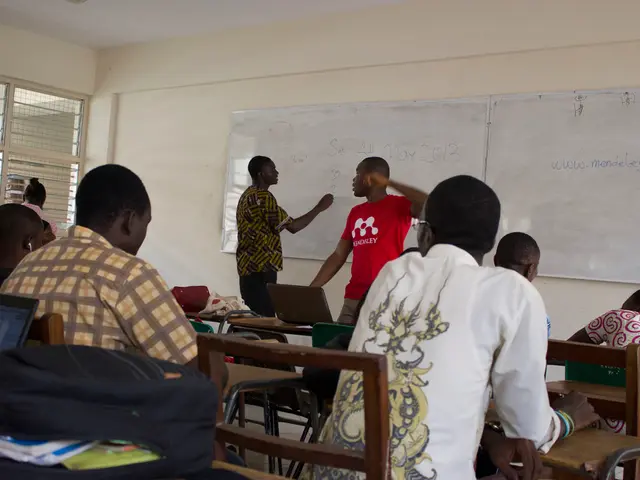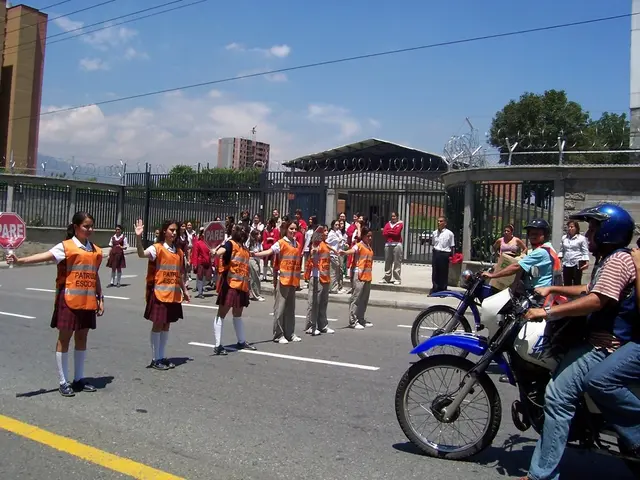Schools urged to reinstate Red Cross courses for students by Youth Red Cross organization.
First Aid Training Expansion Proposed for German Schools
BERLIN — In the aftermath of a century since its establishment, the German Youth Red Cross (JRK) advocates for the compulsory introduction of comprehensive first aid training in schools, including resuscitation, especially from the seventh grade.
Marcel Bösel, the federal head of the JRK, expressed the need for immediate action on this matter. Bösel stated that only two hours of annual layperson training in schools could be sufficient to teach the essentials and demonstrate the simplicity of saving lives.
The Standing Conference of the Ministers of Education and Cultural Affairs had already recommended the topic's inclusion in school curricula, but a comprehensive implementation is yet to materialize. Bösel pointed out that first aid training with a focus on resuscitation is taught in few schools across the nation.
The responsibility of education in Germany lies with the individual states, hence variations exist across regions. Lower Saxony has recently passed a resolution mandating resuscitation education in lessons within that state, while many other states do not have such a requirement.
Bösel attributed the delayed implementation not to a lack of need or support but to financial resources and political will. The JRK aims to train as many children and young people in first aid as possible, primarily through school health services.
The importance of first aid knowledge is emphasized, particularly in emergency situations like heart attacks, where every minute counts and immediate medical assistance may not be available. Bösel estimates that up to 10,000 lives could be saved if layperson resuscitation training is implemented nationwide.
Established on May 27, 1925, the German Youth Red Cross, the youth branch of the German Red Cross, currently boasts 160,000 members aged 6 to 27, according to its own figures. This number has increased by 20,000 in the past year, as indicated by Bösel. Over 45,000 young people are currently involved in school health services across the country.
Bösel noted a growing demand for membership, but expressed concern about the future shortage of leadership personnel. Leadership roles are losing traction in contemporary society, which could pose a challenge for the organization's continued growth.
- In an effort to broaden their scope, the German Youth Red Cross (JRK) proposes the integration of science-based health-and-wellness education, including first aid, fitness-and-exercise, and education-and-self-development, into school curricula.
- Marcel Bösel, JRK's federal head, emphasizes the importance of providing students with foundational knowledge in these areas, suggesting that even a small investment of two hours annually could significantly improve life-saving skills and foster a comprehensive understanding of well-rounded personal development.
- The JRK envisions a future where learning extends beyond academic subjects, empowering students to confidently navigate various aspects of life, from lifesaving situations to personal growth and well-being.








